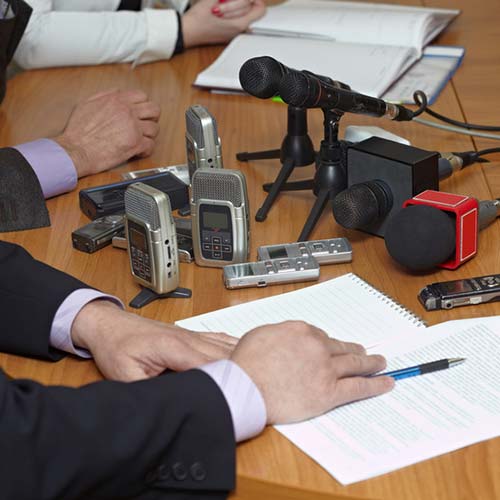Government officials can get creative when they want to hide information from public view. They sue people who request records. They try to kill programs designed to allow citizens to resolve FOI disputes without filing a lawsuit. They make decisions in open meetings without public deliberation. They even use Sunshine Week to propose bills to make it more difficult for citizens to record police activity.
Now, add two more strategies to the playbook: Suing a citizen for copyright infringement after he posted to YouTube recordings of city council meetings, and prohibiting a citizen from photographing a public record. Fortunately, neither effort was successful—thanks to a federal judge and a public-records office, respectively, rejecting the government’s rationale in each case.
Council meeting videos not covered by copyright
Joseph Teixeira is a resident of Inglewood, California, where he has long criticized the mayor and other officials. He operates a watchdog website and regularly posts to YouTube recordings of city council meetings that the city makes available as public records. More specifically, Teixeira posts excerpts of the recordings, overlaid with his own commentary. The city apparently didn’t appreciate it and sued him for copyright infringement, making two allegations, as summarized by the court in its order last week:
First, that it enjoys a copyright interest in the video recordings it makes of open public meetings of the Inglewood City Council. Second, that Teixeira has violated the City’s copyright by using portions of these videos in making his own videos that criticize the City and its elected officials.
The judge hearing the case, Michael Fitzgerald of the US District Court for the Central District of California, tossed out the lawsuit. He concluded that under state law cities may not claim copyright in public records, and under federal law Teixeira’s use of the videos was fair. Indeed, the judge called the videos “quintessential transformative works for the purpose of criticism and commentary on matters of public concern.”
He also noted that Teixeira’s videos don’t compete at all with Inglewood’s distribution of its videos. State law requires the city to make public records “available to any person upon payment of fees covering direct costs of duplication,” so, the judge concluded, Inglewood can’t profit from distributing the videos in the first place.
As UCLA law professor Eugene Volokh pointed out, the judge’s opinion made clear that he thought the city’s case was weak:
It refers to some of the city’s arguments as “plainly wrong” and “plainly incorrect,” for instance, and says Teixeira’s activities “plainly fall within the protections of fair use” and are “clearly protected by the fair use doctrine”—not harsh rhetoric by the standards of comment threads, to be sure, but in a court opinion this is a marker that the city’s arguments were seen as not just mistaken but also pretty obviously wrong.
Another state makes clear: You can take a picture of a public record
More than 2,000 miles away, in Reserve Township, Pennsylvania, a resident named Todd Muenz requested records regarding township expenses related to its involvement with the Pennsylvania State Association of Township Commissioners. He submitted the request under the state Right-to-Know Law (RTKL).
Township officials permitted Muenz to inspect, but not photograph, the responsive records. The local police chief, who supervised the inspection, told Muenz he would have to pay for copies. Muenz objected and ultimately appealed to the state Office of Open Records, a quasi-judicial agency authorized to hear and decide appeals from requesters who have been denied access to records. There, the township argued that nothing in the RTKL required it to allow requesters to photograph records.
In an Aug. 14 ruling, appeals officer Kathleen Higgins disagreed. Noting that the RTKL’s objective is “to empower citizens by affording them access to information concerning the activities of their government,” she concluded that the RTKL “contemplates situations in which requesters themselves duplicate records, rather than seeking duplication by the agency.” And Higgins said it would be “absurd and unreasonable” to tell requesters they couldn’t use their own resources to avoid copying fees. Thus, she ordered the township to permit Muenz to inspect and photograph the responsive records.
A good result.
As Frank LoMonte, executive director of the Student Press Law Center, reported, “With the addition of Pennsylvania, at least seven states now expressly say that the right of access to public records includes the right to make self-service copies, including smartphone photos.”
That’s significant at a time when most Americans own a phone capable of taking photos.
Jonathan Peters is CJR’s press freedom correspondent. He is a media law professor at the University of Georgia, with posts in the Grady College of Journalism and Mass Communication and the School of Law. Peters has blogged on free expression for the Harvard Law & Policy Review, and he has written for Esquire, The Atlantic, Sports Illustrated, Slate, The Nation, Wired, and PBS. Follow him on Twitter @jonathanwpeters.

